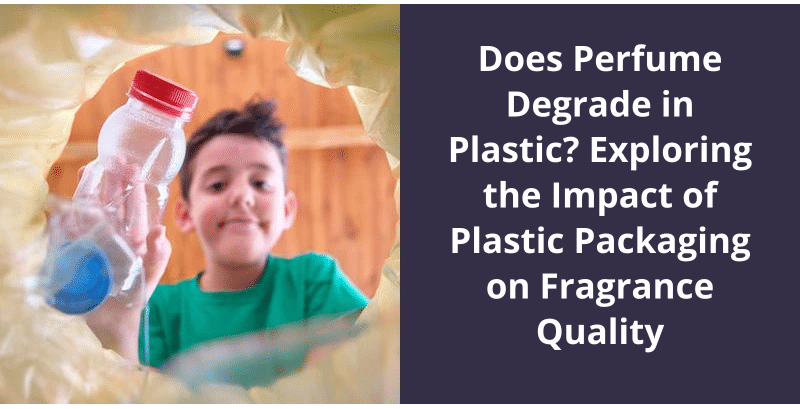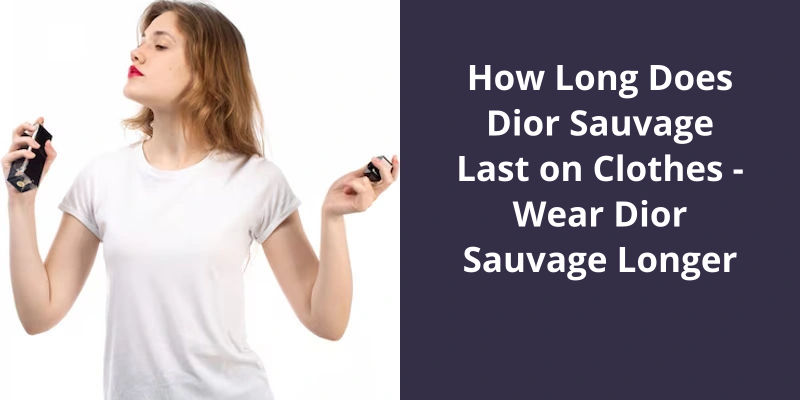Perfume does react with oxygen. Over time, exposure to air can alter the fragrance’s composition and diminish its quality. When a perfume bottle is opened, the oxygen in the air can interact with the ingredients, causing chemical changes that may modify the fragrance. Additionally, the evaporation of volatile components can occur due to the reaction with oxygen. It’s crucial to note that these changes might not be immediate but occur gradually, leading to a variance in the scent over prolonged periods. Therefore, to ensure the longevity of perfumes, they should be stored in airtight containers and kept away from direct light and heat, which could prompt further reactions.

Does Oxygen Affect Perfume?
One of the most intriguing topics in the world of perfuming is the effect of oxygen on fragrance. The interaction between oxygen and perfume is a complicated one, and it’s natural for perfume lovers to wonder what happens to their beloved scent when they expose it to oxygen. Surprisingly, the answer isn’t straightforward, and different scenarios could alter the ultimate outcome.
One of the most unfortunate consequences of exposing a perfume bottle to oxygen is the odors eventual dilution and oxidation. With every exposure to air, the ingredients in the fragrance react with the oxygen around them and gradually start to break down. The delicate balance of scents that create the perfumes unique aroma gets more and more thrown off due to the chemical reactions that take place. This change can cause a scent to lose it’s potency or even change in terms of smell.
Some perfume lovers may find that the changes caused by oxygen exposure to their fragrance is a positive one. The oxidization that takes place can introduce new and interesting notes that werent present before, giving the fragrance a new layer of complexity. However, this oxidization could cause some notes to disappear completely, resulting in an entirely new scent that doesn’t even resemble the original.
Other factors that can cause a fragrance to lose it’s potency and change include UV light, heat, and humidity. Perfume manufacturers typically create packaging that offers some protection against these external factors. However, theres little they can do to prevent the eventual degradation of the fragrance inside the bottle.
If youre planning to add a new fragrance to your collection, it’s essential to be aware of how oxygen exposure can impact it’s ultimate scent. The first spray is always the most potent, and the fragrance will generally only degrade from that point onwards. Ideally, you should try to use the perfume within a few months of opening it to get the most out of it.
When purchasing a bottle of perfume, it’s essential to store the scent properly and use it relatively quickly after opening. This way, youll be able to enjoy the full fragrance before it begins to degrade.
The Chemistry Behind the Interaction Between Oxygen and Perfume
When perfume is exposed to oxygen, it undergoes a chemical reaction called oxidation, which can alter it’s scent and color. This occurs because the oxygen molecules break down the compounds in the perfume, causing them to change and produce new compounds that have different chemical properties. The specific chemical reactions that occur depend on the ingredients in the perfume and the type of fragrance molecules present. Overall, the interaction between oxygen and perfume is a complex process that involves many different chemical components and mechanisms.
As we continue to explore the effects of perfume on the skin, an interesting question arises: does perfume react with sweat? Recent studies have revealed that the answer is yes, the reaction temporarily inactivates the perfume’s molecules, leaving it scentless on the skin. However, the bond between the molecules can be broken with the presence of water or sweat, allowing the perfume’s scent to be released into the air. Let’s dive deeper into the science behind this phenomenon.
Does Perfume React With Sweat?
Perfume is a fragrance that’s inhaled by people to mask unpleasant odors and create a pleasant sensory experience. It’s a popular scent used on a daily basis, and has been for centuries. Perfume is created using various chemicals, some natural and some synthetic, which are mixed together to create a unique scent. This scent is then applied to the skin or clothes, and it lasts for a varying amount of time depending on the individual’s body chemistry and the type of perfume.
One of the most commonly asked questions about perfume is whether it reacts with sweat. The answer to this question is yes. The reason behind this is that sweat is made up of salts and other chemicals, which can interfere with the chemical compounds present in perfume.
Those that are alcohol-based are typically more prone to reaction than those that are oil-based. Those who sweat profusely may find that their perfume becomes inactive sooner than those who sweat less.
Despite this, many individuals continue to use perfume on a daily basis, and find that it enhances their personal hygiene and creates a more pleasant sensory experience. It’s always important to choose a perfume that works well with your body chemistry, and to consider the type of perfume and it’s ingredients when selecting a scent.
Source: How does sweat affect my fragrances?
To ensure that your perfume retains it’s original scent and lasts longer, it’s important to understand how it can be affected by various environmental factors. One of the most critical factors to consider is air. The chemical compounds in perfumes react to the air, and this can alter or even degrade the fragrance over time. Therefore, it’s essential to take measures to protect your perfume from air exposure.
Does Air Affect Perfume?
The reason air affects perfume is simple. It’s primarily due to oxidation, a process that occurs when the scents compounds react with the oxygen in the air. This reaction occurs slowly over time, breaking the scent compounds down and altering the balance of the perfume. The more exposure a perfume has to open air, the more likely it’s to lose it’s original scent and become bland.
This is why perfumes are typically stored in dark, cool places, such as closed drawers or a cupboard. These conditions will help slow down the oxidization process and protect the scents original fragrance composition. Additionally, perfumes are often stored in opaque bottles, which serve to limit light exposure that can also affect the scent.
Even though many modern perfumes contain stabilizers that help to prevent oxidization, they’re still exposed to air every time they’re used. It’s therefore recommended to replace an open bottle of perfume every six months to a year. Once opened, the oxidation process will inevitably start, and the composition will begin to degrade.
Another factor that affects a perfume is humidity. Humid air can encourage bacteria growth, which can affect the scents composition. Therefore, it’s best to ensure that the perfume remains dry and to keep it in a location with low humidity levels.
Storing the fragrance in appropriate conditions is crucial to preserving it’s quality. While some might argue that their perfume still smells good after having been left out on a dresser, it’s important to know that over time, exposure to air will significantly detract from it’s original scent.
How to Properly Apply Perfume to Maximize It’s Longevity
To get the most out of your perfume, apply it on pulse points where your skin is warmest and the fragrance can evaporate more slowly. These points include the inner wrists, base of the neck, behind the ears, and inside the elbows. Spray or dab the perfume onto these areas rather than rubbing it in, as this can break down the fragrance molecules and diminish the scent’s longevity. Additionally, avoid applying perfume to clothing or accessories as it can stain or damage them.
Now that we know how fragrances are made, let’s explore the factors that determine the scent of a perfume.
What Determines the Scent of a Perfume?
The scent of a perfume is determined by the combination of ingredients used in it’s formulation. Perfume oils are extracted from various sources such as flowers, herbs, and spices, and it’s the unique blend of these ingredients that creates a distinct aroma.
One of the most important ingredients in perfume is the base note, which is responsible for the fragrances longevity and depth of aroma. Birch tar, musk, and vanilla are commonly used as base notes due to their strong, long-lasting scent. The middle notes or heart notes consisting of floral, spicy, and herbal scents act as a link between the strong top notes and the lasting base notes of a perfume.
The top notes of a perfume are usually what you smell upon first application, but they fade quickly and aren’t long-lasting. Citrus, fruity, and fresh scents are commonly used as top notes to provide a burst of freshness to the fragrance. The combination of top notes, heart notes, and base notes gives the perfume a complex composition, resulting in a unique scent that blends perfectly with the bodys natural odor.
High-quality essential oils will produce a richer and more intense fragrance than synthetic oils, thus adding to it’s staying power.
Finally, the concentration of perfume oil also impacts a fragrances scent. The higher the concentration, the more potent the scent and the longer it will last. Perfumes typically come in four concentrations with varying degrees of strength – Eau de cologne, Eau de toilette, Eau de parfum, and Perfume extract. Each has a specific ratio of perfume oil to alcohol, with perfume extract having the highest concentration of perfume oil and, therefore, the strongest scent.
The perfect perfume scent is a delicate balance that involves an understanding of both the science and art behind the creation of fragrances, making it a truly remarkable product.
So, if you want to ensure the longevity of your fragrance, it’s important to store it properly and keep it away from direct sunlight and other sources of light. But what exactly should you do to protect your perfumes from light damage? Let’s explore some tips and tricks to help you keep your favorite scents smelling fresh for longer.
Does Light Destroy Fragrance?
The molecules in perfume are highly sensitive and can be easily disrupted by external factors like light and heat. Light can trigger a chemical reaction known as photo-oxidation, which can damage the structure of fragrance molecules. When this happens, the scent of the perfume can change or even disappear altogether. This is why it’s important to store your perfume in a cool, dark place away from light.
If you must display your perfume bottles on a shelf or vanity, it’s best to choose a spot that isn’t exposed to direct sunlight or artificial light. You can also consider storing your perfume in a special case or drawer that will protect it from light and other external factors.
Some perfume manufacturers use special packaging to help protect the fragrance from light. For example, some perfumes come in dark, opaque bottles that block out light. Others come in special cases that are designed to shield the fragrance from light and other environmental factors. If you’re concerned about the impact of light on your perfume, it’s worth researching the packaging options before making a purchase.
It’s important to protect your perfume from light if you want it to last longer and maintain it’s fragrance. Be mindful of where you display your fragrance and take care to store it in a cool, dry place away from direct sunlight and artificial light.
How Does Heat Affect Fragrance in Perfumes?
- Heat can cause perfume to evaporate more quickly, leading to a stronger scent.
- Exposure to heat and sunlight can break down the chemical compounds in perfume, altering the fragrance.
- Storing perfume in a cool, dark place can help preserve it’s scent and longevity.
- Applying perfume to pulse points on the body can enhance the fragrance, but be cautious in hot weather as it may intensify the scent even more.
- Heavy sweating due to heat can also affect how a perfume smells on the skin.
Conclusion
With the wide usage of fragrances in our daily lives, it’s important to be aware of the potential hazards they may pose. Proper labeling of perfume ingredients and education on potential risks can help individuals make informed decisions on their personal care products. Further research into the long-term effects of exposure to these allergenic compounds is also necessary to ensure the safety and well-being of the general public.





